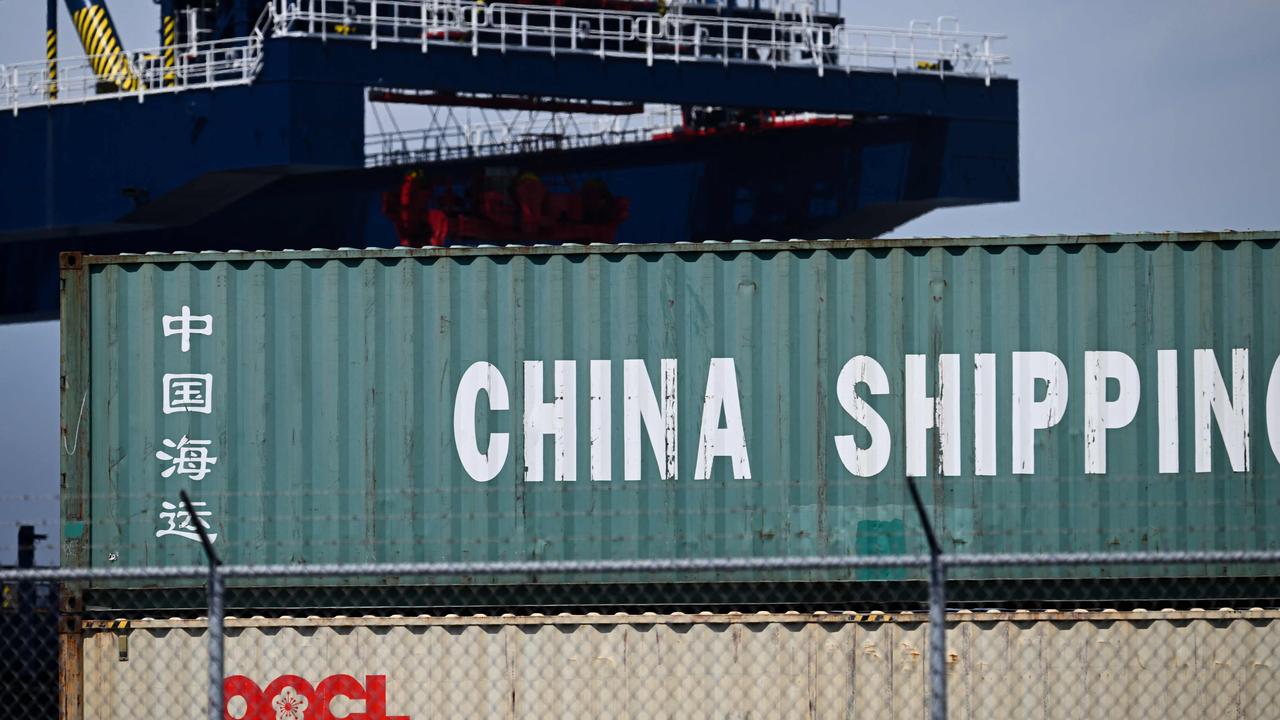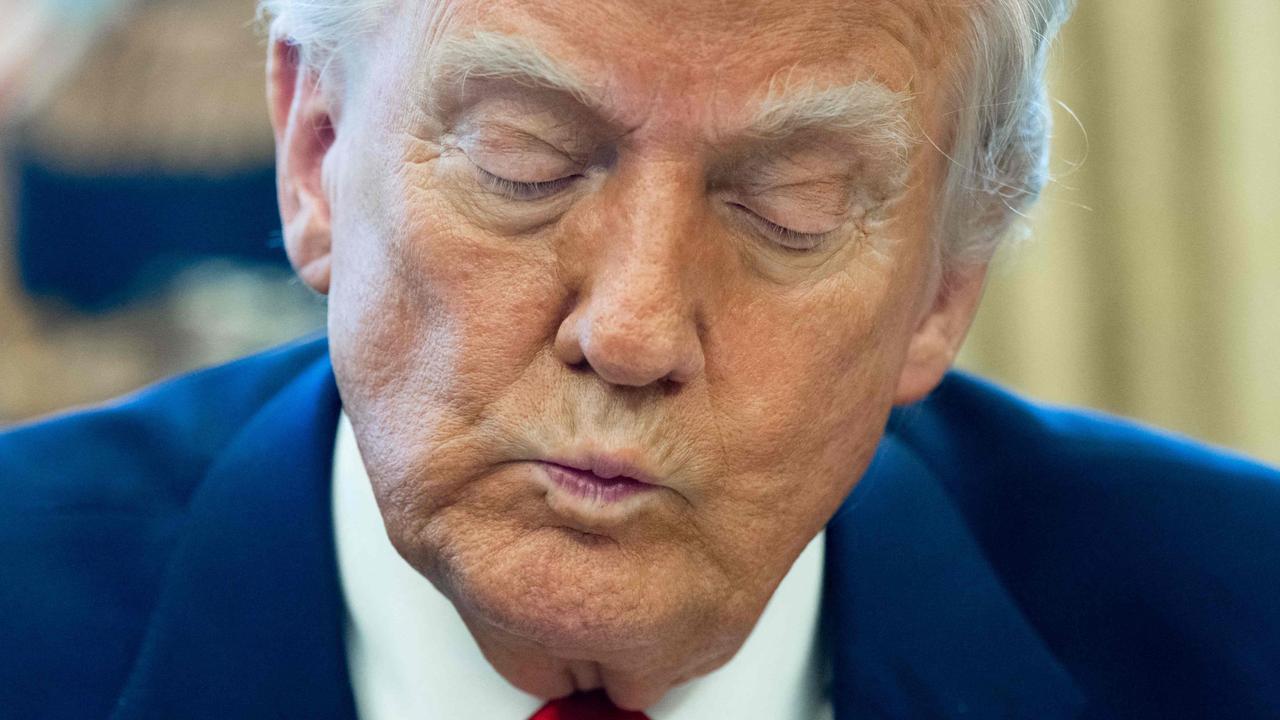Donald Trump’s planned White House return could put AUKUS submarine program at risk
Donald Trump’s planned White House return could put the AUKUS submarine program at risk, writes Tom Minear.
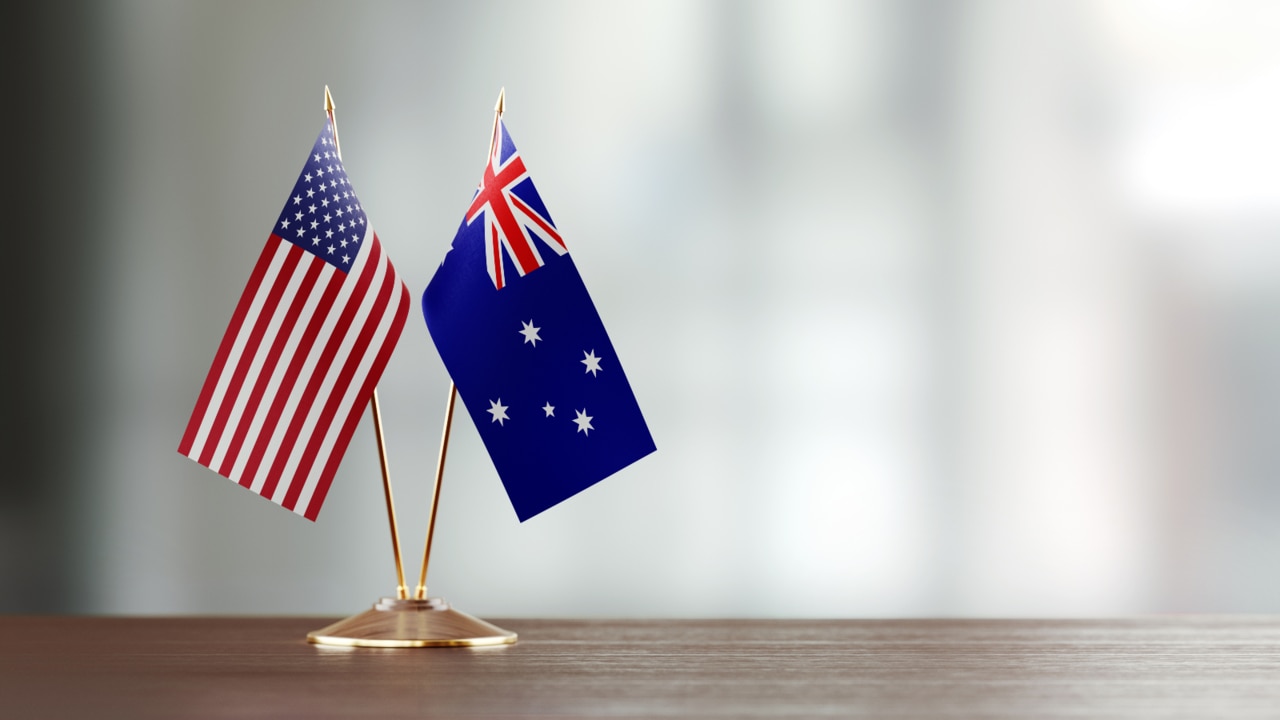
World
Don't miss out on the headlines from World. Followed categories will be added to My News.
Since AUKUS was announced just over a year ago, the pact has been in the stewardship of three British prime ministers, two Australian prime ministers and one American president.
From all reports, this instability has not impeded progress on the critical defence initiative, including an 18-month study of how Australia can acquire its own nuclear submarine fleet.
Those decisions will be finalised early next year, with the first in-person meeting of AUKUS defence ministers in Washington DC this week expected to nail down the broad strokes.
Time is of the essence. Even the most optimistic experts concede it is unlikely Australia will have a nuclear-powered boat in the water much before the end of the next decade.
It is this decade, however, that Joe Biden has declared will be the decisive one in countering China – and we are already almost a third of the way through it.

Biden’s assessment is shared by senior figures in Canberra. This timeline, combined with the years already wasted on alternative versions of a future Australian submarine fleet, has opened an alarming capability gap in our defences that the AUKUS pact must resolve.
Defence Minister Richard Marles, while not wanting to front-run the trilateral study, has outlined a new doctrine for defence spending based on “impactful projection”. Reading between the lines, this is seen to mean fewer tanks and helicopters, and more missiles, autonomous underwater vehicles and submarines.
Marles rightly argues the nuclear submarine delivers on that doctrine better than anything else, placing “the single biggest question mark in our adversary’s mind”. If that is the case, then he cannot in good conscience make the Navy wait another 20 years for its first boat.
There is no perfect alternative. Some have suggested building new conventional submarines to accompany Australia’s existing Collins-class fleet, but this is seen to be highly unlikely, especially given the complexity of tasking the Navy with managing three separate platforms.
A more credible pathway rests on the goodwill of our American allies.
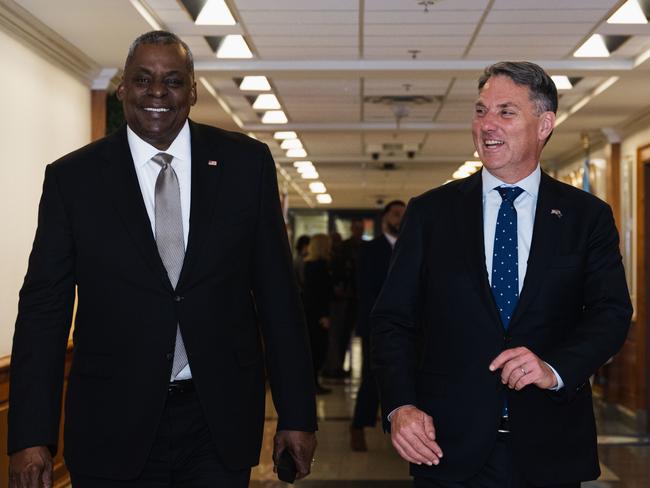
They could lease us part of their existing nuclear-powered fleet, sell us new boats coming off the production line in the US, or turn Australia into the home port for some American-crewed vessels.
Marles has described AUKUS as a chance to move “beyond interoperability to interchangeability” with our allies, and these moves would be the ultimate expression of that.
According to some reports, such options have prompted some scepticism in Washington, given the strain already on the US submarine production line as well as a desire to ensure Australia pulls its weight. This is fair enough, and Marles himself has acknowledged AUKUS must grow the combined defence footprint of the countries involved, not just shift it around.
But Marles and Anthony Albanese have so far given no reason to doubt their commitment to spend what it takes to transform Australia’s defences and meet the China challenge.
The same goes for Biden and Britain’s Rishi Sunak. What happens next rests on their will.
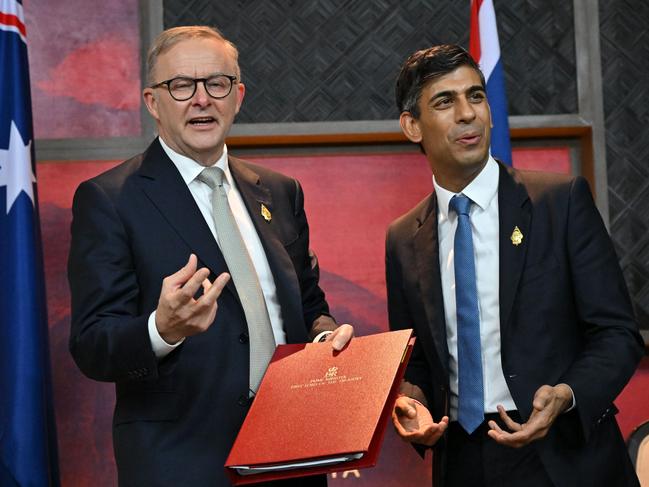
To return to where we started, however, it is worth contemplating what happens beyond that.
There have been six leaders in the first 14 months of AUKUS, and more will follow. If Donald Trump has his way, he will be one of them after America’s 2024 presidential election.
In office, Trump complained the US was spending too much on NATO, and frequently told colleagues they “should just get out” of the security alliance. He similarly questioned the cost of America’s overseas bases, such as a South Korean facility needed to identify Chinese military movements within seconds rather than minutes from the US.
“I don’t really give a s***,” he reportedly told his generals, arguing that “we’ll be fine” without those bases.
If he returned to the White House, what would Trump make of lending Australia several multibillion-dollar submarines? How would he feel about giving Australia a nuclear-powered boat off a US production line instead of keeping it for his own Navy?

Even in private, such questions prompt a fascinating response from Australian officials. For reassurance, they seize on the fact that America’s posture on China is the perhaps most bipartisan issue in Washington. They also acknowledge the conventional wisdom that Trump’s recent track record makes it unlikely he will succeed in returning to the presidency.
What is left unsaid is that Australia can really only cross its fingers to avoid such a scenario, given the uncertainty – if not unmitigated chaos – it would bring.
But AUKUS is a decades-long endeavour. Even if Trump’s own political career is over, it is not clear yet whether his Republican successors will copy his brand of protectionism and his disrespect of allies. Top party figures have already cast doubt over American aid for Ukraine.
In Australia, both major parties are all the way with the USA. Here’s hoping we can take the Yanks to the bank.
More Coverage
Originally published as Donald Trump’s planned White House return could put AUKUS submarine program at risk




